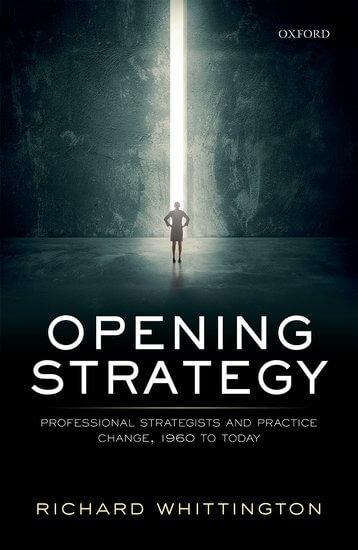An open invitation
Richard Whittington’s latest book on strategy puts the case for greater openness, outlining why it could be of benefit both to the bottom line and wider society
In 1993, Professor Richard Whittington wrote Strategy – What It Does and What Is It Good For? It went on to sell over a million copies and is still regarded in both academic and professional circles as one of the definitive books on the subject.
In Opening Strategy, he examines how the topic has evolved over the past 60 years. The earliest practitioners in terms of modern business were corporations such as General Electric. They looked at strategy as if it were Colonel Sanders’ secret recipe for fried chicken – something to be kept under lock and key. If competitors understood your strategy, you were effectively handing over your competitive advantage, gift-wrapped and complete with a card saying 'You’re welcome'.

But the world has become more complex, organisations are more interconnected and the challenges we face right now are greater than at any time since the Cold War. We are no longer solely reliant on nation-states and politicians to solve those challenges. So Whittington believes it is incumbent upon businesses such as Facebook, Google or Walmart to be more open about strategy.
Speaking to the Business Review, he says, 'One of the things about today’s world is we have an extremely well-informed public.
I think society needs to know what some of these incredibly large organisations, in some sense, are planning to do and be subject to critique of these plans.'
He adds, 'Top managers need to share their strategising with their employers at various levels, to different degrees as appropriate, because some things are necessarily confidential. And it is important to give them some sense of internal accountability.'
I think chief executives and team managers need to share as much as they can of their strategies to the outside world
'Also I think chief executives and team managers need to share as much as they can of their strategies to the outside world. Investors deserve that, and we have done some studies to show that investors reward openness around strategy, but I think the wider citizenship of the world requires that too.'
Whittington has observed a shift, albeit gradual, towards open strategy. IBM is perhaps the most obvious example of a multinational that has adopted a more open approach internally, although he believes organisations could go further.
With regards to what he wants the book to achieve, he says, 'In the first place I obviously hope that more firms will see the benefits of the strategy. But I also hope we develop this further, to think about what it implies for professional strategists who are at the heart of the strategy consultants as well as the in-house corporate strategists.'
Opening Strategy should serve as the basis for a wider discussion about a new model that not only serves the interests of the C-suite and the shareholders but society as a whole.
Read: Opening Strategy: Professional Strategists and Practice Change by Richard Whittington (Oxford University Press, £55).




